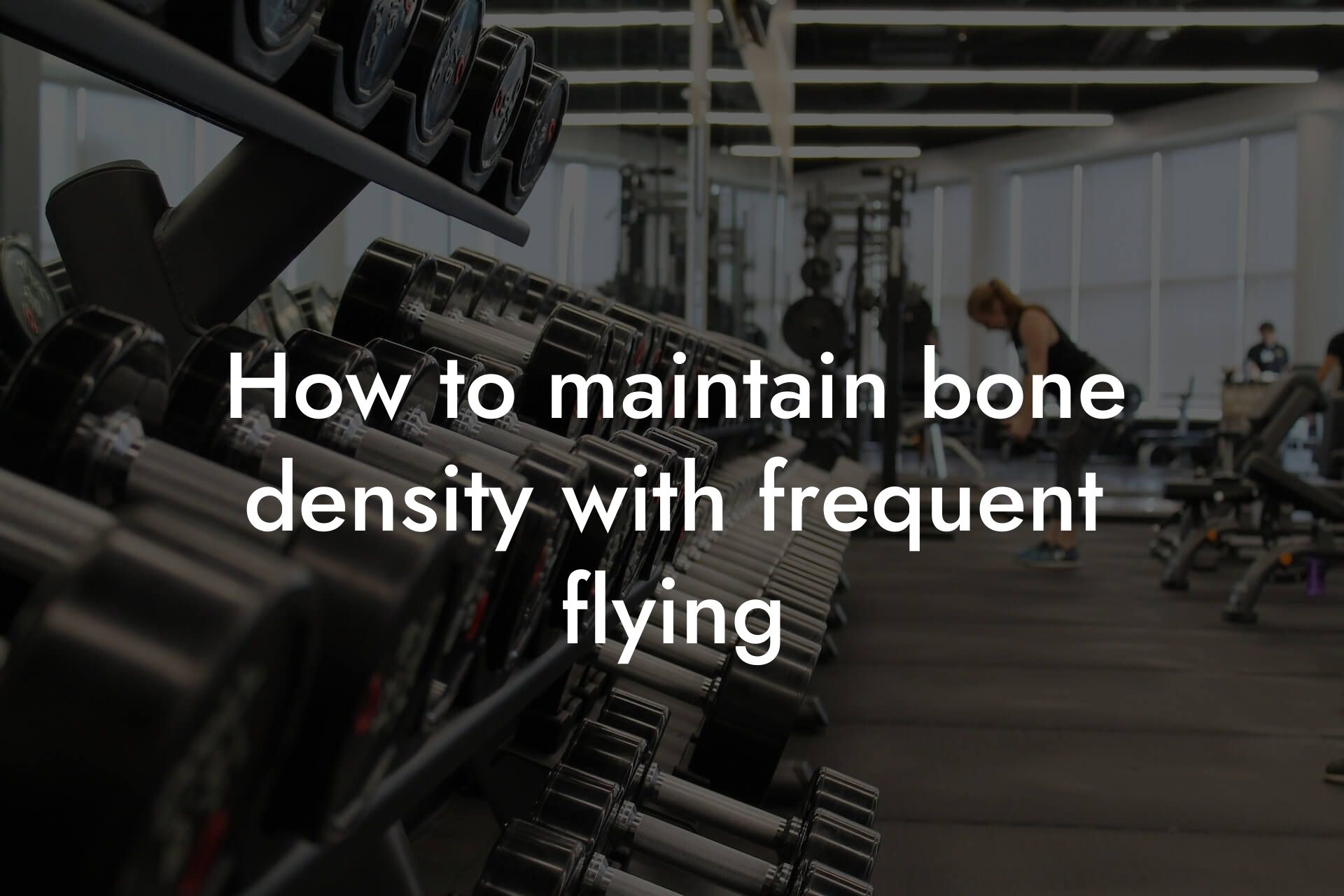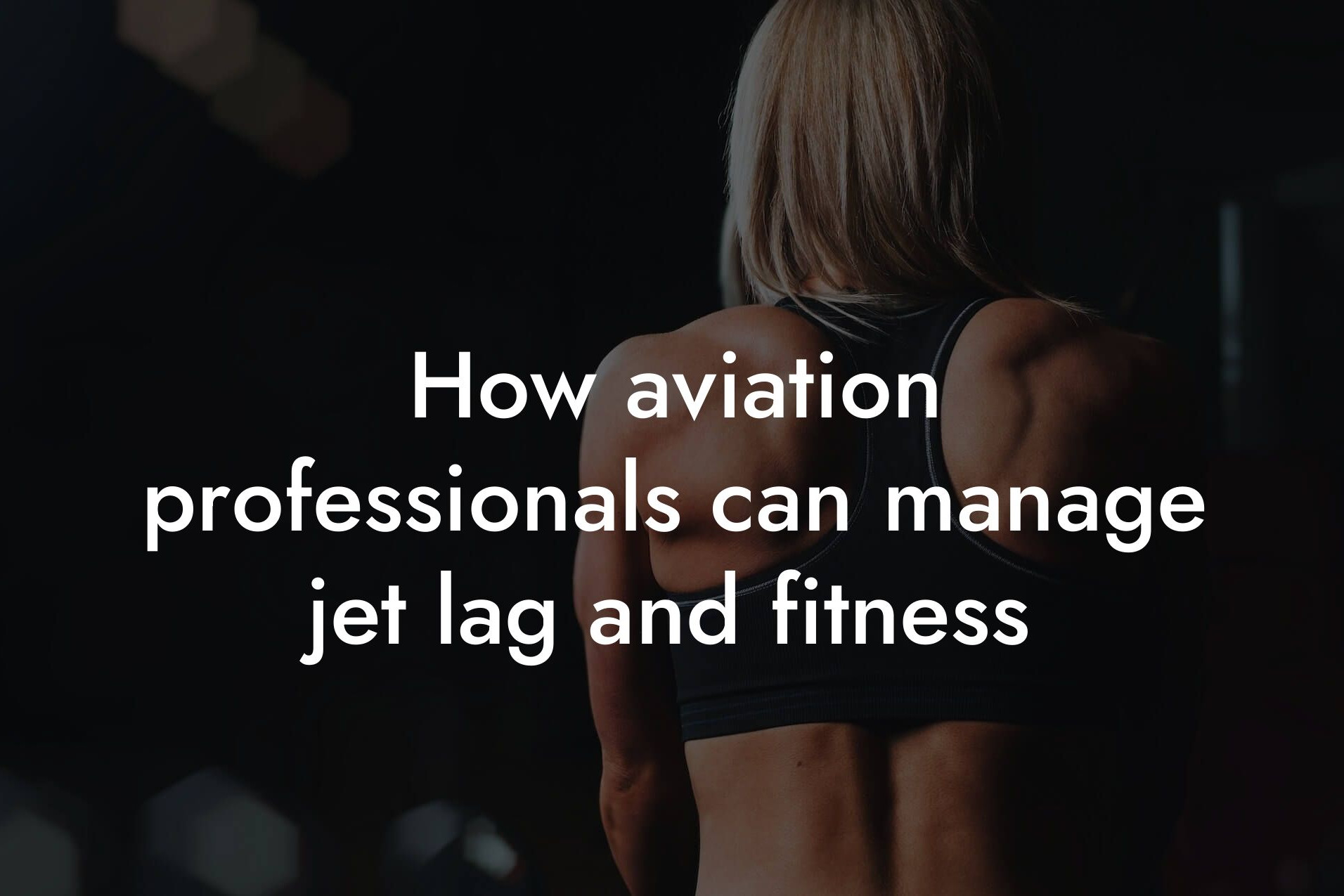As a high-earning professional, maintaining a high level of physical fitness is crucial for optimal performance in various aspects of life, including flight readiness. Flight readiness is a critical component of military and aviation operations, requiring pilots and aircrew to be in top physical condition to perform their duties safely and effectively. In this article, we will delve into the role of physical fitness in maintaining flight readiness, highlighting the essential components of a comprehensive fitness program and the benefits of regular exercise for pilots and aircrew.
Table of Contents
- Physical Demands of Flight Operations
- Components of a Comprehensive Fitness Program
- Benefits of Regular Exercise for Pilots and Aircrew
- The Role of Body Composition in Flight Readiness
- Assessing Body Composition for Flight Readiness
- Creating a Personalized Fitness Program for Flight Readiness
- Final Thoughts
- Frequently Asked Questions
Physical Demands of Flight Operations
Flight operations can be physically demanding, requiring pilots and aircrew to withstand a range of physical stresses, including G-forces, turbulence, and extreme temperatures. Additionally, pilots must be able to operate complex aircraft systems, navigate through challenging weather conditions, and make quick decisions in high-pressure situations. These physical and mental demands can be exhausting, making it essential for pilots and aircrew to maintain a high level of physical fitness to perform their duties safely and effectively.
Components of a Comprehensive Fitness Program
A comprehensive fitness program for pilots and aircrew should include a combination of aerobic exercise, strength training, flexibility exercises, and functional training. Aerobic exercise, such as running or cycling, improves cardiovascular health, increasing endurance and reducing the risk of cardiovascular disease. Strength training, including exercises like push-ups and squats, builds muscular strength and endurance, essential for withstanding the physical demands of flight operations. Flexibility exercises, such as stretching, improve range of motion and reduce the risk of injury. Functional training, including exercises that mimic the physical demands of flight operations, improves coordination, balance, and overall functional ability.
Benefits of Regular Exercise for Pilots and Aircrew
Regular exercise provides numerous benefits for pilots and aircrew, including improved physical performance, enhanced mental acuity, and reduced risk of injury and illness. Exercise improves cardiovascular health, increasing endurance and reducing the risk of cardiovascular disease, a leading cause of death among pilots. Regular exercise also improves mental health, reducing stress and anxiety, and enhancing cognitive function, critical for making quick decisions in high-pressure situations. Furthermore, exercise reduces the risk of injury and illness, allowing pilots and aircrew to maintain their duty status and perform their duties safely and effectively.
The Role of Body Composition in Flight Readiness
Body composition plays a critical role in flight readiness, as excess body fat can impair physical performance and increase the risk of injury and illness. Pilots and aircrew with high levels of body fat may experience decreased endurance, reduced mobility, and impaired cognitive function, all of which can compromise their ability to perform their duties safely and effectively. Conversely, maintaining a healthy body composition, with low levels of body fat and high levels of lean muscle mass, enhances physical performance, reduces the risk of injury and illness, and improves overall flight readiness.
Assessing Body Composition for Flight Readiness
Assessing body composition is essential for pilots and aircrew to maintain optimal flight readiness. At Tano Performance Group, we use Dual-Energy X-ray Absorptiometry (DEXA) scans to provide a comprehensive assessment of body composition, including body fat percentage, lean muscle mass, and bone density. This information allows pilots and aircrew to identify areas for improvement, develop targeted fitness programs, and track their progress over time.
Creating a Personalized Fitness Program for Flight Readiness
Creating a personalized fitness program for flight readiness requires a comprehensive understanding of an individual's fitness level, body composition, and physical demands of their duties. Pilots and aircrew should work with a qualified fitness professional to develop a tailored fitness program that addresses their specific needs and goals. This program should include a combination of aerobic exercise, strength training, flexibility exercises, and functional training, as well as strategies for improving body composition and reducing the risk of injury and illness.
In conclusion, physical fitness plays a critical role in maintaining flight readiness, enabling pilots and aircrew to perform their duties safely and effectively. A comprehensive fitness program, including aerobic exercise, strength training, flexibility exercises, and functional training, is essential for withstanding the physical demands of flight operations. Additionally, maintaining a healthy body composition, with low levels of body fat and high levels of lean muscle mass, enhances physical performance, reduces the risk of injury and illness, and improves overall flight readiness. By prioritizing physical fitness and body composition, pilots and aircrew can optimize their performance, reduce the risk of injury and illness, and maintain their duty status.
Final Thoughts
At Tano Performance Group, we understand the importance of physical fitness and body composition for high-earning professionals, including pilots and aircrew. Our comprehensive body assessment using DEXA scans provides individuals with the information they need to develop targeted fitness programs, improve their body composition, and optimize their performance. By prioritizing physical fitness and body composition, pilots and aircrew can maintain their duty status, perform their duties safely and effectively, and achieve optimal flight readiness.
Frequently Asked Questions
What is flight readiness, and why is it important?
Flight readiness refers to the physical and mental ability of an individual to perform their duties safely and effectively in a high-stress, dynamic environment. In the context of aviation, flight readiness is critical to ensure the safety of pilots, crew members, and passengers. Maintaining flight readiness is essential to prevent accidents, reduce errors, and optimize performance.
How does physical fitness impact flight readiness?
Physical fitness plays a crucial role in maintaining flight readiness. It enhances an individual's ability to withstand the physical and mental demands of flying, such as G-forces, turbulence, and long periods of sitting. Regular exercise improves cardiovascular health, increases strength and flexibility, and boosts endurance, all of which are essential for pilots to perform their duties safely and effectively.
What are the physical demands of flying?
Flying is a physically demanding task that requires pilots to withstand various stresses, including G-forces, turbulence, and changes in air pressure. Pilots must also be able to operate complex machinery, make quick decisions, and maintain focus for extended periods. Physical fitness helps pilots to cope with these demands and reduce the risk of fatigue, errors, and accidents.
How does physical fitness affect mental performance in pilots?
Physical fitness has a profound impact on mental performance in pilots. Regular exercise improves cognitive function, enhances concentration, and boosts mood. Physical fitness also reduces stress and anxiety, which are critical factors in maintaining flight readiness. When pilots are physically fit, they are better equipped to handle the mental demands of flying, including decision-making, problem-solving, and situational awareness.
What are the benefits of regular exercise for pilots?
Regular exercise provides numerous benefits for pilots, including improved cardiovascular health, increased strength and flexibility, enhanced endurance, and better sleep quality. Exercise also reduces the risk of chronic diseases, such as heart disease, diabetes, and obesity, which can impact flight readiness. Additionally, regular exercise improves mental health, reduces stress and anxiety, and boosts overall well-being.
What types of exercise are recommended for pilots?
Pilots should engage in a variety of exercises that improve cardiovascular health, increase strength and flexibility, and enhance endurance. Aerobic exercises, such as running, cycling, and swimming, are excellent for improving cardiovascular health. Resistance training, such as weightlifting and bodyweight exercises, can help improve strength and flexibility. Pilots should also incorporate high-intensity interval training (HIIT) and functional exercises that mimic the physical demands of flying.
How often should pilots exercise?
Pilots should aim to exercise at least 3-4 times per week, with a minimum of 30 minutes per session. However, the frequency and duration of exercise will depend on individual circumstances, such as flight schedules, duty cycles, and personal fitness goals. Consistency is key, and pilots should aim to make exercise a regular part of their lifestyle.
What is the role of nutrition in maintaining flight readiness?
Nutrition plays a critical role in maintaining flight readiness. A balanced diet that includes plenty of fruits, vegetables, whole grains, lean proteins, and healthy fats provides the energy and nutrients needed to support physical and mental performance. Adequate hydration is also essential to prevent dehydration, which can impair cognitive function and physical performance.
How can pilots optimize their nutrition for flight readiness?
Pilots can optimize their nutrition for flight readiness by fueling their bodies with a balanced diet, staying hydrated, and avoiding excessive caffeine and sugar. Pilots should also avoid heavy meals before flying and opt for light, frequent meals to prevent digestive discomfort. Additionally, pilots should consider consulting with a registered dietitian or nutritionist to develop a personalized nutrition plan.
What is the impact of sleep on flight readiness?
Sleep is essential for maintaining flight readiness. Adequate sleep helps to improve cognitive function, enhance physical performance, and reduce the risk of fatigue and errors. Pilots should aim for 7-9 hours of sleep per night and establish a consistent sleep schedule to optimize their sleep quality.
How can pilots improve their sleep quality?
Pilots can improve their sleep quality by establishing a consistent sleep schedule, creating a sleep-conducive environment, and avoiding stimulating activities before bedtime. Pilots should also avoid caffeine, nicotine, and electronic devices at least an hour before bedtime and opt for relaxing activities, such as reading or meditation, to wind down.
What is the role of stress management in maintaining flight readiness?
Stress management is critical in maintaining flight readiness. Chronic stress can impair cognitive function, reduce physical performance, and increase the risk of errors and accidents. Pilots should engage in stress-reducing activities, such as meditation, yoga, and deep breathing exercises, to manage stress and maintain flight readiness.
How can pilots manage stress effectively?
Pilots can manage stress effectively by identifying their stressors, developing coping strategies, and engaging in stress-reducing activities. Pilots should also prioritize self-care, take regular breaks, and seek support from colleagues, friends, and family members. Additionally, pilots can consider seeking professional help from a mental health professional if needed.
What is the importance of regular medical check-ups for pilots?
Regular medical check-ups are essential for pilots to ensure they are fit to fly. Medical check-ups help to identify any underlying medical conditions that could impact flight readiness, such as high blood pressure, diabetes, or cardiovascular disease. Pilots should undergo regular medical check-ups as required by their aviation authority or employer.
How can pilots maintain their physical fitness during long periods of inactivity?
Pilots can maintain their physical fitness during long periods of inactivity by engaging in light physical activity, such as stretching, yoga, or bodyweight exercises. Pilots can also use resistance bands, portable exercise equipment, or fitness apps to stay active. Additionally, pilots can prioritize sleep, nutrition, and stress management to maintain their overall health and well-being.
What are the consequences of not maintaining flight readiness?
The consequences of not maintaining flight readiness can be severe, including increased risk of accidents, errors, and fatalities. Pilots who fail to maintain their physical and mental fitness may also experience reduced performance, decreased confidence, and increased stress and anxiety. Additionally, failure to maintain flight readiness can result in loss of certification, disciplinary action, or even termination of employment.
How can pilots balance their work and personal life to maintain flight readiness?
Pilots can balance their work and personal life to maintain flight readiness by prioritizing self-care, setting realistic goals, and establishing a routine that includes regular exercise, healthy nutrition, and adequate sleep. Pilots should also learn to say "no" to excessive work demands, take regular breaks, and seek support from colleagues, friends, and family members.
What resources are available to help pilots maintain flight readiness?
Pilots can access a range of resources to help them maintain flight readiness, including fitness programs, nutrition counseling, and mental health services. Pilots can also seek support from their employer, aviation authority, or professional organizations, such as the International Air Transport Association (IATA) or the Federal Aviation Administration (FAA).
How can pilots stay motivated to maintain their physical fitness and flight readiness?
Pilots can stay motivated to maintain their physical fitness and flight readiness by setting realistic goals, tracking their progress, and celebrating their achievements. Pilots can also find a workout buddy, join a fitness community, or participate in fitness challenges to stay motivated. Additionally, pilots can remind themselves of the importance of flight readiness and the benefits of maintaining their physical and mental fitness.
What is the role of mental health in maintaining flight readiness?
Mental health plays a critical role in maintaining flight readiness. Pilots must be able to manage stress, anxiety, and other mental health challenges to perform their duties safely and effectively. Mental health issues, such as depression, anxiety, and post-traumatic stress disorder (PTSD), can impact flight readiness and must be addressed promptly.
How can pilots prioritize their mental health and well-being?
Pilots can prioritize their mental health and well-being by seeking support from mental health professionals, practicing stress-reducing activities, and prioritizing self-care. Pilots should also be aware of the signs and symptoms of mental health issues and seek help promptly if needed. Additionally, pilots can prioritize sleep, nutrition, and physical activity to support their mental health and well-being.
Here are some related articles you might love...
- How to maintain bone density with frequent flying
- The benefits of DEXA scans for aviation professionals
- How aviation professionals can manage jet lag and fitness
- Staying fit while managing irregular flight schedules
- Balancing in-flight duties with personal fitness goals
- Nutrition strategies for staying healthy on long flights
- Managing stress and staying fit in the aviation industry
- The impact of physical health on flight safety
- Quick workouts for pilots and flight attendants during layovers
Zak Faulkner
Zak Faulkner is a leading authority in the realm of physical health and body composition analysis, with over 15 years of experience helping professionals optimise their fitness and well-being. As one the experts behind Tano Performance Group, Zak has dedicated his career to providing in-depth, science-backed insights that empower clients to elevate their physical performance and overall health.
With extensive knowledge of DEXA technology, Zak specializes in delivering comprehensive body assessments that offer precise data on body fat, muscle mass, bone density, and overall physique. His expertise enables individuals to make informed decisions and achieve their fitness goals with accuracy and confidence. Zak’s approach is rooted in a deep understanding of human physiology, combined with a passion for helping clients unlock their full potential through personalised strategies.
Over the years, Zak has earned a reputation for his commitment to excellence, precision, and client-focused service. His guidance is trusted by top professionals who demand the best when it comes to their health. Whether advising on fitness programs, nutritional strategies, or long-term wellness plans, Zak Faulkner’s insights are a valuable resource for anyone serious about taking their health and fitness to the next level.
At Tano Performance Group, Zak continues to lead our Content Team revolutionising how professionals approach their physical health, offering unparalleled expertise that drives real results.




